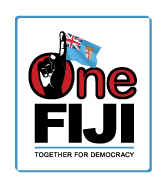HEARING
BEFORE THE COMMITTEE ON WAYS AND MEANS
U.S. HOUSE OF REPRESENTATIVES
ONE HUNDRED ELEVENTH CONGRESS
FIRST SESSION
NOVEMBER 17, 2009
Testimony By Embassy of the Republic of the Fiji Islands
Statement of the Embassy of the Republic of the Fiji Islands
The Embassy of the Republic of the Fiji islands wishes to express its appreciation to the Subcommittee on Trade of the House Committee on Ways and Means for convening this hearing on this vital subject.
The Generalized System of Preferences (GSP) is the oldest and most broadly based of the U.S. preference programs, first enacted by Congress in the Trade Act of 1974. Today, 131 developing countries are beneficiaries, with forty-four countries receiving additional benefits as least-developed beneficiaries. All GSP beneficiaries receive duty-free treatment for nearly 3500 tariff lines, and least-developed countries receive duty-free treatment for an additional 1400 tariff lines.
The GSP program provides preferential duty-free treatment for 3,448 products from Fiji. In 2007, Fiji exported $69.7 million to the United States under the GSP program. The products mainly consist of mineral water ($56.7m), molasses ($4.3m), raw cane sugar (3.4 million), dasheens ($1.8m), and cane molasses ($1.6 million). Imports are up 32.percent over 2006, when $52.8 million in goods were imported from Fiji under GSP. Approximately 45.6 percent of all U.S. imports from Fiji in 2007 entered under the GSP program. This compares to 36.2 percent of all imports in 2006. In 2008 Fiji exported $70,055,968 to the United States under the GSP program and from January this year 2009 to September this year 2009 Fiji has exported $34,245,733 to the United States under the GSP program.
Preferences programs like GSP assist developing countries like Fiji in our efforts to build up domestic industries and increase exports. However these preference programs also help U.S. businesses and families. They are a major source of imports and products for U.S. businesses, including small- and medium-sized companies, and include important partnership opportunities between U.S. workers and businesses, and workers and businesses in beneficiary developing countries. Imports under these programs also lower costs for U.S. consumers and producers. For example, in 2008, duty-free treatment under GSP resulted in a total savings of approximately $850 million. In 2005, according to the U.S. Chamber of Commerce, 75 percent of U.S. imports entering duty-free under GSP were raw materials, components or equipment used by U.S. companies to manufacture goods either for domestic consumption or export. The Chamber also found that GSP is particularly important to U.S. small businesses, many of which rely on the program’s duty savings to compete with much larger companies. Maintaining lower costs for US small- and medium-sized enterprises is particularly important as companies struggle to recover from the economic downturn.
The GSP however is weeks away from expiring. We submit that the stability of GSP which is the US’s largest program is essential to it being effective. When the US has extended its programs in the past sometimes it is only for a few months or a year. No one who has ever run a business would want to invest in a climate that is so unstable. Such programs need to be long-term. In view of the very short time remaining before the program expires on December 31, 2009, we would propose that Congress provided immediately a five-year extension or some similar long term period.
Thank you.

No comments:
Post a Comment